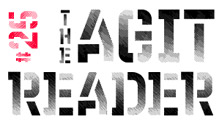
Songs for the Broken Hearted
Kranky
Michigan duo Windy & Carl have always run the risk of alienating even the most patient listener with their brand of pop-infused dream-gaze. One can often feel like they are interrupting some weird introspective revelation the couple would achieve if only they were given more time alone. This has never been an entirely bad thing. In fact, it’s part of the appeal of a genre that can oftentimes appear forced (see: Labradford, Town & Country). On Songs for the Broken Hearted, the duo delivers another 10 tracks of well orchestrated melancholy that continues to cement a sort of keystone status in this contemporary ambient pop lineage.
Windy’s vocals on opening track “Btwn You + Me” should immediately squelch any feelings of apprehension towards the hour-long trek. Windy’s “sing you a secret” vocal style, akin to Yo La Tengo’s Georgia Hubley or Landing’s Adrienne Snow, serves as a kind of anchor to the atmospheric drone that dominates the release. The oscillating instrumental “Rhodes” transitions nicely into the gorgeous and wordy (for this couple at least) “Champion,” making a perfect centerpiece to the sad and spacious album. By the end of the summative final track, “The Same Moon and Stars,” the listener is left satisfied with the kind of predictable catharsis that one feels when pulling apart two magnets. In essence, Windy & Carl’s Songs for the Broken Hearted is a strong record with no surprises, failures, or true triumph.
Phil Goldberg

808s and Heartbreak
Roc-a-Fella
Say what you want about Kanye West, he’ll always keep you on your toes. After he spent most of the year supporting his 2007 album Graduation, one would have thought it a safe bet that he would take a year off to regroup. Instead, in September he performed on the MTV Video Awards with a song so new no one knew the title. And then he announced that he’d have a new record out before the end of the year. Oh and it would be all singing. And all in Auto-Tune, the vocal effect that T-Pain has abused and rode to the bank for quite a few quarters. Oh dear. And now that album is here: 808s and Heartbreak.
In case there was any kind of confusion, 808s and Heartbreak is a break-up record. In the fine tradition of musicians who got done wrong by a woman, West took it to the studio. And decided to sing about it, no less. There’s no particular answer why West decided to get his Alfalfa on, but at the end of the day, it works. And while pre-release claims stated the whole album would be all sung, West does do his fair share of rapping. The biggest question was why he would use Auto-Tune, a vocal effect that makes everyone sound like they’re using the Commodore 64 robot voice or a poor man’s Roger Troutman. It’s a fine line West walks, but overall it’s not as distracting as it could be. The best use of the Auto-Tune has to be in the first single, “Love Lockdown,” where the distortion of the voice and drive of the drums illustrate the internal struggle. And, uh, sounds really cool.
Lyrically, this record isn’t as an uncomfortable a glimpse into a disintegrated relationship as Beck’s Sea Change or Marvin Gaye’s Hear My Dear, but has enough squirm-inducing moments to make West the Greg Dulli of the hip-hop generation.
The smartest thing West has done was to position 808s and Heartbreak as a pop record. By not trying to place it under the hip-hop umbrella, he can always claim this as a one-off experiment and use sounds not currently found in hip-hop. So when he goes full-tilt ‘80s on “Paranoid,” it’s a lot easier transition than placing it next to “Two Words.” The only question is how much further Kanye can take this “Euro” style. “Stronger” was the first attempt and with 808s there’s not much territory left to cover. But that’s a question to be answered later. For now, 808s and Heartbreak is a helluva trip.
Dorian S. Ham

Safe Trip Home
Arista
Dido’s first big breakthrough single to gain commercial success was “Thank You,” sort of a spiced up Sarah McLachlan with a fresh (at the time in 2001), trip-hop reminiscent backing track carrying the vocals. The song was a standout (“I want to thank you for giving me the best day of my life”) because of her voice and the way she could incorporate a falsetto hiccup in the melody and make it sound like a happy accident every time. As a result of her obvious skill as a singer, this quirky pop song opened doors for her as an artist and a professional musician. Eminem sampled the track, and it appeared in the film Sliding Doors and on countless television shows.
On Safe Trip Home, Dido recruited ?estlove of the Roots and Mick Fleetwood of Fleetwood Mac fame, two of the best drummers on the planet, but somehow managed not to squeeze an amazing beat out of either. She even roped Brian Eno into producing a track, “Grafton Street.” Here she shows her growth as a lyricist: “No more driving down your road, wondering when you’ll be home, and no more peace when they all leave and leave us two alone.” But at the same time, the song shows that Eno is not always Midas. For some reason it sounds more like a Phil Collins homage than a collaboration between Eno and Dido, which is even more strange considering Eno’s recent work with David Byrne (it sounds like 30 years ago and so right now at the same time), but that’s beside the point. Dido came to a crossroads in 2001 where she had options. She could have chosen to follow up the fresh sound she was making then with even more current sounding stuff, and perhaps she’d be still riding the wave of new exciting music now. Or she could have chosen to stick to bedroom Yankee Candle serenades for those lonely pensive people who don’t like to wallow in their self-pity in public. Should we guess which Dido chose? Not to sell her short, there are some decent songs here. “Never Want to Say It’s Love” is a head-bobber that Tegan and Sarah could remake; “Burnin’ Love” is an alt-country slow-burner; and “Northern Skies” could be that one track on a Lenny Kravitz album that’s worth hearing. There is no “Thank You,” but at the same time there is no substantial growth. But she’ll be fine—she basically wrote the book for all the music featured on Grey’s Anatomy.
Michael P. O’Shaughnessy

Tronic
Fat Beats
There’s a definite void in hip-hop, and the game needs a clear voice to emerge, someone who sounds credible bouncing a Range Rover but not completely laughable in the light of day. (Yo Weezy, I’m looking at you.) Black Milk (a.ka. Curtis Cross) is definitely a frontrunner for the job. He’s got the skills, he’s got real live Detroit street cred, and he’s got the tunes. As a producer he was knighted by no less than the late and greatest Jay Dilla himself.
So when’s Black Milk gonna have his breakthrough album? Some folks think this is it, but I wouldn’t bet on it, though. The album starts out like the classic it could’ve been. “Long Short Story” eases in with some plaintive piano chords before it morphs into a positively epic beat, and Milk starts right at the beginning, “8-14-1983 I’m here.” It’s the story of his life, properly aggrandized and filled with shout-outs to his D-Town compatriots, steadily building to his final cry, “It’s only the beginning!” Damn.
From there, though, the album gets downright schizophrenic. The midnight-electro textures of “Bounce” and “Hold It Down” clash against the formulaic, sung-hook fare of “Bond 4 Life” and “Without U,” which play downright soft against the battle raps of “The Matrix,” in which Milk actually manages to hold his own with Pharoahe Monch, and “Losing Out.” The latter features a livid Royce Da 5'9" loosing so much fire you’ll swear you can hear the smoke, over a beat so aggressive one expects someone to yell “Dipset!” All these tracks are exemplars of their particular breed, but the whole is not greater than the sum of its parts.
In his past work, whether on his own or in collaboration with Fat Ray or a slew of West Coasters (on the Caltroit mixtape), Cross distinguished himself by reining in sounds from all over the hip-hop globe, but finding ways to make the jagged edges fit together cohesively. Now that the South is petering out and Kanye is turning into Rivers Cuomo, Milk is positioned to steal the limelight and drive it back to Detroit. Sadly though, Tronic, his most high-profile project to date, is the sound of a young dog relying too much on old tricks.
Matt Slaybaugh

The Cross of My Calling
Vagrant
In this über-political year, it’s fitting that the (International) Noise Conspiracy are back. The Karl Marx quoting, R&B-soaked garage rockers have returned with their fourth album, the Rick Rubin–produced The Cross Of My Calling.
The (International) Noise Conspiracy is an interesting animal. Cut from a similar cloth as the Make-Up, they fuse garage-rock dance grooves with political sloganizing. And The Cross Of My Calling is no exception. However, the messages aren’t as in your face as the past. Where they once succinctly claimed that “Capitalism Stole My Virginity,” now it takes a glance the liner notes to catch such lines as “The construction of everything expected and everything we despised / A cultural blackmail in pants and skirts” (“The Assassination of Myself”). The band seems aware of their wordiness, not only including the lyrics but also highlighting where they quoted such political minds as Karl Marx, Virgil, Abbie Hoffman and, um, Iggy Pop and the Clash. Sure it’s heady stuff, but the INC wisely wrap their politics in a rocking blanket. If you never read the lyrics you’d never know that the song you’re bopping down the street to is a call for people to overthrow the ruling class.
The Cross Of My Calling is the second record to be released after the departure of founding keyboardist Sara Almgren. The band’s previous record, Armed Love, also helmed by Rubin, managed to rope in the late Billy Preston on keyboard duties. But for the 2008 version of INC, keyboards aren’t as big of a focus. As a result, this new record takes a sideways step away from the sounds of old. While the danceable garage grooves are still prevalent, it seems like someone in the band discovered both the Doors and the Strawberry Alarm Clock in the down time between records. It isn’t a bad thing, but it’s also kind of jarring, unless you’ve never heard any INC records before. For those who have, though, the absence of soul and a bit of punch will be a disappointment.
Dorian S. Ham
ALBUM REVIEWS
We Are Beautiful, We Are Doomed
Mike Rep and the Quotas, Songs the Grackles Liked EP
Frida Hyvönen, Silence Is Wild
Isobel Campbell & Mark Lanegan, Sunday at Devil Dirt
The Dead C, Secret Earth
Wintersleep, Welcome to the Night Sky
Love Is All, A Hundred Things Keep Me Up At Night
The Magnificents, Year of Explorers
Times New Viking, Stay Awake EP
Skeletons, Money
Q-Tip, The Renaissance
Wild Beasts, Limbo, Panto
The Cure, 4:13 Dream
O'Death, Broken Hymns, Limbs, and Skin
Crystal Stilts, Alight of Night
